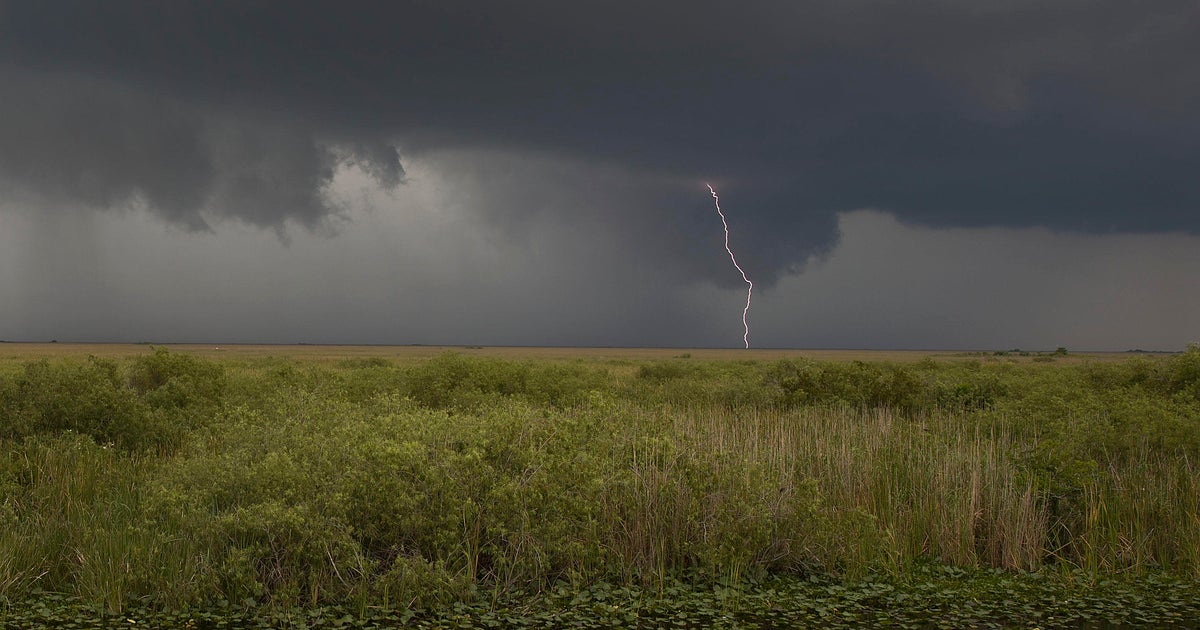Rogue Rocket Booster Could Crash Into Moon In Next Few Weeks
MIAMI (CBSMiami/CNN) -- SpaceX is about to leave a permanent mark on the moon, potentially.
Astronomers say a rogue Falcon 9 rocket booster, which launched in February 2015 from the Kennedy Space Center, is currently on a trajectory to collide with the moon in just a few weeks.
They say it's expected to hit the moon on March 4 and could leave a crater on the far side of the moon.
While spacecraft are sometimes intentionally crashed on the moon at the end of a lunar mission, for example, space debris randomly hitting the moon is uncommon, said Holger Krag, head of the European Space Agency's Space Debris Office.
It is safer for the rocket stage, which is 49 feet long, to crash on the moon than make an uncontrolled entry into Earth's atmosphere, Krag said. The rocket booster is thought to weigh between 3 and 4 tons.
"The stage would be permanently disposed. From a safety point of view, this is actually the safest way of disposing it. Leaving it drifting around an orbit around the Sun does not provide assurance that it will not be captured again by Earth one day," he said.
There are about 30 to 50 lost deep space objects like the Falcon rocket stage that have been missing for years, but no space agencies have systematically kept track of space debris so far away from Earth, said Jonathan McDowell, an astronomer at the Harvard and Smithsonian Center for Astrophysics.
"This is the first time that something not targeted at the moon has been noticed to accidentally hit it, but that's mainly because we weren't paying attention until recently," he said via email.
Krag said the collision could be a scientific opportunity.
The resulting dust clouds from an impact could be analyzed for clues to the composition of the lunar surface. Gray said orbiters such as India's Chandrayaan-2 could also take images of the resulting crater, giving a glimpse of some freshly exposed lunar soil from a meter or two below -- a rare chance to look below the moon's surface.
NASA's Lunar Reconnaissance Orbiter, which has been circling the moon since 2009, won't be in a position to observe the impact, according to NASA.
(©2022 CBS Broadcasting Inc. All Rights Reserved. Cable News Network, Inc., a Time Warner Company, contributed to this report.)


